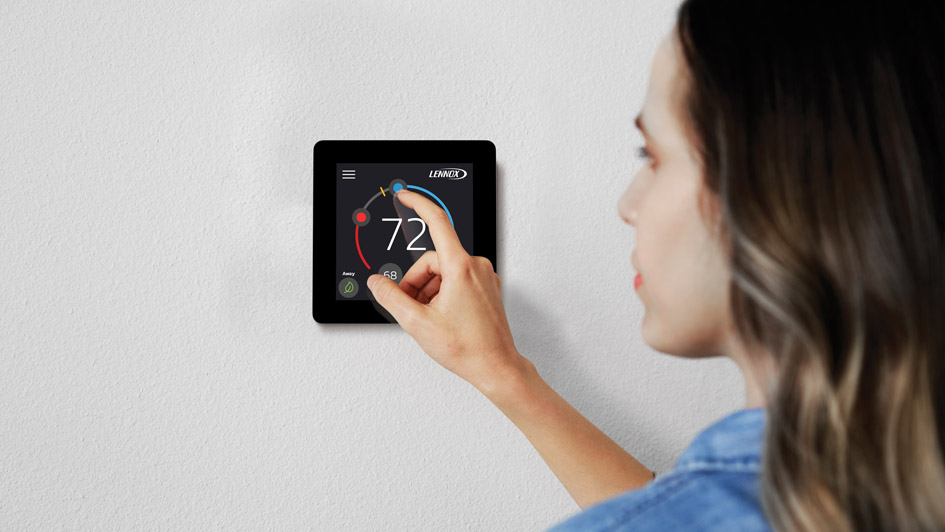
Extreme weather can cause your energy bills to skyrocket, especially when your HVAC system is running constantly. But there's good news. Homeowners in Derby, Connecticut, can easily save money and reduce stress on their HVAC system by following practical energy-saving HVAC practices. From scheduling a seasonal HVAC tune-up to DIY HVAC maintenance, these small things can help you keep comfortable and cut costs.
Here, the experts at Giordanos Heating and Air Conditioning will share their best heating and cooling tips for HVAC energy efficiency to help you reduce energy bills without compromising comfort.
1. Contact a Professional for Seasonal HVAC Maintenance
Of all the energy-saving HVAC tips for residents, one that often makes the biggest impact is routine HVAC maintenance. Scheduling pro furnace maintenance in the fall and air conditioning maintenance in the spring ensures these systems are in peak condition and ready for the heating and cooling seasons. It's also a smart time to spot and fix any inefficiencies, worn-out parts or brewing problems—saving you from avoidable HVAC repair and potentially extending the life of your heating and cooling equipment.
2. Use Specific Programmable Thermostat Settings for Winter and Summer
Programmable thermostats offer many ways to save energy. In summer, set your thermostat to automatically increase the temperature when you're away. In winter, set the temperature to lower a bit when the home is empty and warm back up when you get back. Even a few degrees can cut down significantly on energy use.
Take your savings a step further with a smart thermostat. One of the many smart thermostat benefits is their ability to adapt to your schedule and automatically fine-tune your home temperature. This means smart thermostats can increase your energy efficiency—and you don't have to manually change the temperature.
3. Prevent Energy Waste By Eliminating Air Leaks in Your Home
Air leaks around windows, doors and in old ductwork enable heated or cooled air to leak out. Work with a reliable HVAC technician to determine if you need duct sealing and insulation services. Repairing or sealing air ducts, improving insulation and eliminating air gaps all help reduce energy bills by allowing your HVAC system to work less in order to keep your home warm or cool.
4. Perform Basic DIY HVAC Maintenance
In addition to scheduling a technician for routine HVAC maintenance, you can reduce energy bills by handling these home HVAC maintenance tips:
- Clear debris like sticks, grass clippings and plants from around your outdoor air conditioning equipment in spring
- Wash the condenser coils of the outdoor air conditioning equipment in spring
- Follow a regular HVAC air filter replacement schedule: Check your system's filter monthly, replacing if dirty or every 90 days
- Ensure air vents and registers are open and unblocked
- Check your thermostat settings, ensuring it's on cool mode in summer and heating mode in winter
5. Replace Aging, Inefficient Units with Energy-Efficient HVAC Systems
Boost energy efficiency by upgrading old, inefficient heating and cooling systems to new high-efficiency HVAC systems. Consider opting for ENERGY STAR®-rated HVAC equipment, which uses less energy than non-rated units. When looking for cooling equipment, check for a high SEER (Seasonal Energy Efficiency Ratio) rating. Not sure what SEER means? The basic SEER rating explanation: the higher the SEER, the more efficient the system. The same is true with AFUE, or Annual Fuel Utilization Efficiency, which measures efficiency in heating equipment. The higher the AFUE, the more efficient the system. These ratings are important because energy-efficient HVAC systems can significantly reduce energy bills and improve year-round performance.
Work with Giordanos Heating and Air Conditioning to Prevent HVAC Energy Waste All Year
When it comes to staying comfortable and saving money on your heating and cooling Giordanos Heating and Air Conditioning is the HVAC company Derby, Connecticut, locals rely on for their furnace, AC, heat pump and more. From seasonal HVAC tips like these to heating and cooling installation, we provide comprehensive service all year. Call 203-941-5099 today for Derby, Connecticut, HVAC service you can count on.
